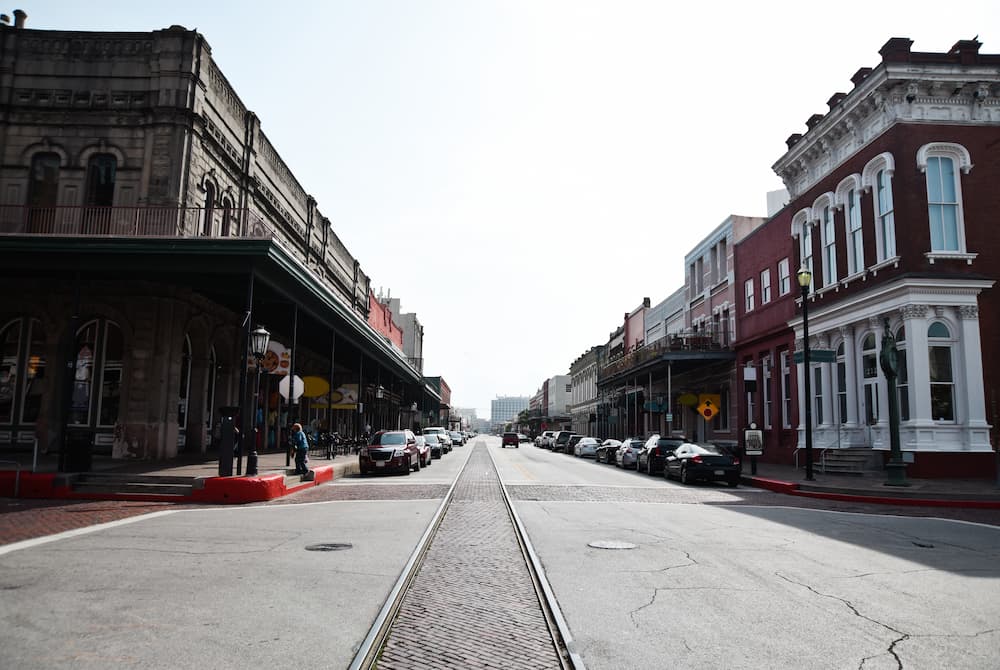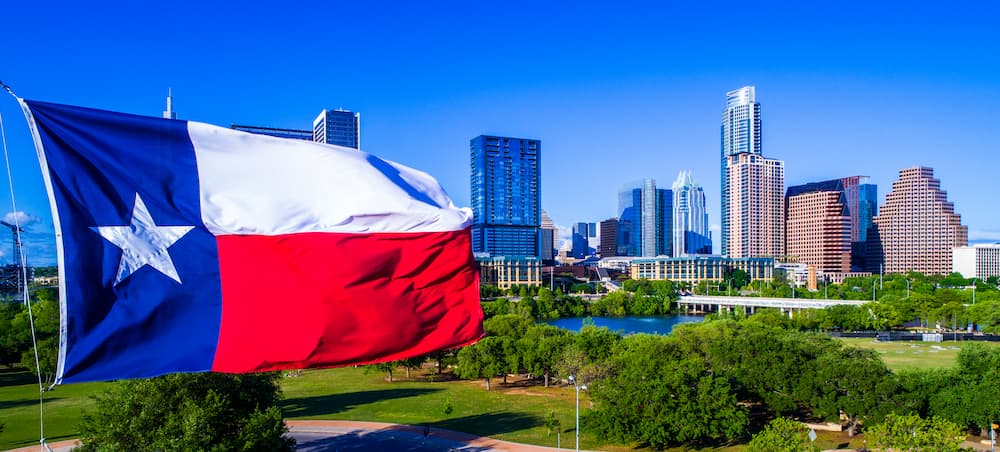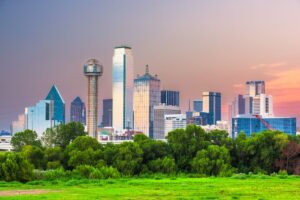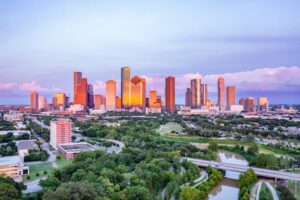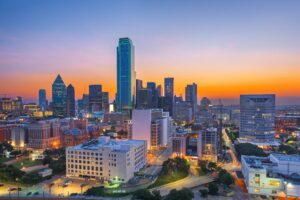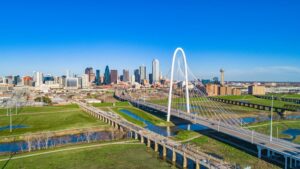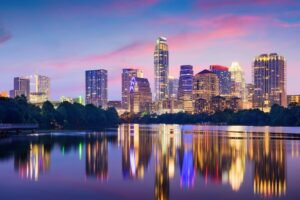
If you’re considering moving to Texas, then you’ve already discovered why so many people are flocking to its major cities, suburbs, and small towns alike.
Texas is a big state with an even bigger personality, with a long list of reasons why it’s become one of the fastest-growing states in America. From a booming economy and diverse population to a world-famous food scene, affordable cost of living, and mild climate, Texas certainly has plenty to offer – and it could be the perfect place for you to call home.
What to Know Before Moving to Texas
At Wan Bridge, we’ve created a guide that covers everything you’ll need to know before making your big move and answers all your questions about Texas living. We will break down the basics, including the Texas job market, the weather, living expenses, and all the fun things to visit and experience in your soon-to-be home state.
What is it like to live in Texas?
As the second-largest state in America, Texas spans more than 268,000 square miles and has nearly 30 million residents and counting. Located in the South Central United States, the state’s terrain includes rolling prairies and grasslands, lush forests, scenic deserts, rugged hills and mountain ranges, and even 360-plus miles of beautiful coastline.
Each Texas city and town has its own unique character and charm, and many Texas cities are among the most populous metropolitan areas in the nation. Choose from living in a large, bustling metropolis like Dallas-Fort Worth or Houston, a laid-back coastal community like Palm Bay Galveston, or a family-friendly suburb like Pearland – your choices are virtually limitless.
With so many different places to live in Texas, you truly have the freedom to settle in a community that fits your lifestyle, goals, and more. So, when it comes to explaining what it’s like to live in Texas, the answer is simple: it’s whatever you want it to be!
Here’s a close look at what living in Texas is like.
Texas is home to a diverse population.
Diversity is a major point of pride for new and longtime Texans, from race and ethnicity to religion and language. Immigrants from outside the U.S., including those from Mexico, India, China, El Salvador, and Vietnam, account for nearly 20% of the state’s population. Although English (more specifically, the dialect nicknamed “Texan English”) is the most common language spoken here, you’ll also hear a colorful variety of other languages as well.
This diversity largely contributes to the state’s vibrant arts and culture scene and culinary community, as well as so many other aspects that make Texas a wonderful place to live.
The state has a booming job market.
Thanks to business-friendly policies, abundant natural resources, a large population, and numerous centers for higher education, Texas is host to an exceptionally strong economy. As of 2022, the state has the nation’s highest number of Fortune 500 company headquarters, including globally recognized names such as AT&T, ExxonMobil, American Airlines, Texas Instruments, and Kimberly-Clark.
The Texas economy boasts a broad range of thriving industries, including technology, agriculture, healthcare, retail, construction, banking, and numerous others. For individuals searching for jobs in Texas, this means that the opportunities are both plentiful and diverse.
The weather in Texas can vary, depending on where you live.
Both its massive size and geographic location (at the intersection of several different climate zones) make Texas a state where the weather is highly variable. For example, cities within the Texas Panhandle will see snow several times every winter. In contrast, in coastal communities, snowfall is extremely rare.
During the summer, Texas temperatures typically reach highs in the range of 90℉, sometimes higher in the Rio Grande Valley. Winter weather in Texas is usually mild, with most areas hovering in the 60° range for high temperatures. Thunderstorms happen relatively frequently, and significant weather events such as tornadoes and hurricanes are somewhat common in certain portions of the state.
If you’re moving to Texas from somewhere with freezing and frigid winters, you’ll likely be pleasantly surprised by the comparatively temperate winters here.
Families have a wide range of options for quality education, from early childhood education to post-secondary.
There are more than 1,000 public school districts in Texas and an ever-growing number of private, charter, and faith-based educational facilities.
In terms of higher education, the options are equally rich in number and variety. There are dozens of public universities across the state, with the best-known belonging to systems that include the University of Texas, Texas A&M, the University of Houston, and Texas Tech. You’ll also find a number of private colleges and universities, ranging from small liberal arts colleges to large, top-tier research universities.
Traffic can sometimes be a challenge in Texas.
It’s no secret that Texas traffic can make for a busy commute, particularly in large metropolitan areas. However, the expansion of public transit options such as Dallas Area Rapid Transit (DART) and Capital MetroRail is helping to alleviate rush hour congestion, as well as offer more choices for individuals who prefer not to drive.
How much does it cost to live in Texas?
For anyone considering relocating, a budget is a top priority. Here in Texas, affordable living isn’t just possible – it’s actually the norm.
The cost of living in Texas is often lower than the U.S. average.
The cost of living in Texas comes at about 6% less than the national average. Certain expenses in Texas, such as housing, are significantly less expensive than they are in other parts of the country. Other expenses are slightly lower or on par with U.S. averages.
What are the taxes in Texas?
Among the many perks of living in Texas is the state’s reputation for low tax rates, which are ranked among the least expensive in the country. It is just one of a handful of U.S. states that do not have a state income tax, and there is also no state property tax.
Regarding the sales tax rate, Texas is on par with national averages. However, Texans also have the opportunity to shop on a few “tax-free holidays” each year, which are designated days on which no sales taxes are charged on purchases made within the state.
You can look forward to saving money on electricity bills.
Texas has a deregulated electricity market, meaning that consumers have the freedom to choose their energy supplier (rather than be limited to just one). You also have the option to change energy providers. As a result, this can help Texans enjoy the benefit of competitive energy rates, which can reduce expenses overall.
What are some fun things to do in Texas?
Whether you enjoy exploring history, arts, culture, shopping, food, sports, or entertainment, Texas has no shortage of great things to do and see. Its most popular attractions include The Alamo, the Texas State Capitol, the San Antonio Riverwalk, the Houston Museum of Natural Science, and many others. You can also venture into the great outdoors, relax on the beach, or experience the thrilling nightlife of the larger cities.
With such an incredible variety of attractions to choose from, Texas offers endless fun for families, young couples, singles, and retirees alike.
There’s a passionate sports culture in Texas.
Although many Texas would argue that football is the sport that reigns supreme, residents of this Southern state are dedicated fans of a wide variety of sports. Professional sports teams in Texas include the NFL’s Dallas Cowboys and Houston Texans, the MLB’s Houston Astros and Texas Rangers, the NBA’s Dallas Mavericks, Houston Rockets, San Antonio Spurs, and the NHL’s Dallas Stars. The city is also home to the WBNA’s Dallas Wings and three Major League Soccer teams.
Of course, college sports are huge in Texas – particularly college football. There are 12 Division 1-FBS schools in Texas, with four state universities participating in the yearly Big 12 Conference.
Although it may not be the first thing you think of when you consider Texas sports, the rodeo plays an important part in local sports culture. Houston hosts the world’s largest annual rodeo, and Fort Worth is where the world’s oldest continuously running rodeo takes place every year. NASCAR and IndyCar Series are other favorite sports events, as well as the Formula 1 World Championship races located in Austin.
For foodies, Texas is a culinary paradise.
Considered a melting pot of cultures from around the world, Texas is the perfect place for people who love to eat – and eat well. Famous for its Tex-Mex cuisine, the state also has virtually every type of international food offering you can think of: Mexican, Asian, European, South American, and so many others. You’ll scarcely be able to travel the span of a city block without passing by at least one barbecue restaurant. Don’t be surprised if you find yourself regularly engaging in friendly debates about the best barbecue in Texas.
Texas serves up a little of everything from casual hidden gems to five-star gourmet restaurants.
Texas is the perfect place for outdoor enthusiasts.
There are more than a dozen national parks in Texas, drawing nearly 6 million visitors yearly. The year-round temperate climate makes it an ideal setting for outdoor activities, as do its myriad of lakes and rivers, beaches, mountains, and more.
If you are an outdoor enthusiast, you can experience everything from trekking through prehistoric flint quarries to soaking up the sun on the sandy coastlines. Texans enjoy water sports, camping, hiking, biking, and many other outdoor activities, as well as ample opportunities for hobbies such as outdoor photography, birdwatching, and historical studies.
In Dallas, discover the city’s version of Central Park, known as White Rock Lake Park. Or, take a short drive to the Cedar Ridge Nature Preserve and hike its trails. Houstonians can kayak in Buffalo Bayou Park, surf at the nearby Jamaica Beach in Galveston, and dive into many other water sports and activities. In Austin, Lady Bird Lake is a local favorite for relaxing and swimming alike, as is the historic Barton Springs Pool in Zilker Park.
What are the Fastest-Growing Areas in Texas?
The top three most desirable and fastest-growing cities in Texas are Houston, Dallas, and Austin, each possessing unique characteristics and advantages.
Houston
The largest city in Texas is Houston, a thriving metropolitan area that’s been growing rapidly in recent years. The greater Houston area encompasses a number of leading places to live in Texas, including:
- Houston
- Sugar Land
- Katy
- Cypress
- Texas City
- The Woodlands
- Webster
- League City
- Missouri City
- Bellaire
- Galveston
- Pearland
- Humble
- Dickinson
- Kingwood
- Danbury
- Rosharon
- Atascocita
Dallas-Fort Worth
Dallas and Fort Worth are two sister cities that make up one of the major metropolitan areas in Texas, with a personality that is equal parts cosmopolitan chic and classic Southern cowboy.
Cities and towns in the Dallas-Fort Worth Metroplex include:
Austin
This city’s unofficial slogan is “keep Austin weird,” a fitting summation of its eclectic, fun-loving vibe. Austin is also a central technology hub in Texas. It has recently become among the top places to live in the American South.
Cities, towns, and communities in the Austin Metro area include:
- Austin
- Georgetown
- Round Rock
- Cedar Park
- San Marcos
- Pflugerville
FAQs About Texas
Here are a few more commonly-asked questions about moving to and living in Texas.
What are the benefits of moving to Texas?
Perhaps one of the biggest advantages of moving to Texas is simply how affordable it can be to live here – and the high quality of life you will be able to enjoy. Residents have access to solid job opportunities and accessible housing in most Texas cities, in addition to numerous amenities.
What jobs are popular in Texas?
The healthy Texas economy offers an array of job opportunities in many different fields, ranging from entry-level positions to C-level executive roles. There are also many entrepreneurs in Texas and individuals who choose to be self-employed.
Top employers in Texas include:
- Amazon
- American Airlines
- AT&T
- Boeing
- Capital One
- Dell
- JP Morgan Chase
- Lockheed Martin
- Southwest Airlines
- Toyota
Industries in Texas with major employers include energy, information technology, higher education, advanced manufacturing, biotechnology, aerospace, defense, and others.
What universities are in Texas?
There are dozens of colleges and universities in Texas, both public and private. Some of the most recognizable institutions of higher learning include:
- Rice University
- Texas Tech University
- The University of Texas at Austin
- Texas A&M University
- University of Houston
- The University of Texas at Dallas
- The University of North Texas
- The University of Texas at Arlington
- The University of Texas at El Paso
- Texas State University
- Trinity University
- Austin College
- Baylor University
- Southwestern University
- Abilene Christian University
Ready to Move to Texas? Consider a Wan Bridge Rental Community
You might not need a cowboy hat and boots to become a true Texan, but you’ll definitely need the right place to call home – luckily, WB’s luxury home rental communities have plenty of options to suit your needs. With homes for rent in Dallas, Houston, and Austin, our one-of-a-kind master-planned WB communities are specifically designed with tenants in mind.
Whether you’re searching for a contemporary brownstone for rent in Houston, a beachy bungalow in the seaside town of Galveston, or a spacious, single-family home in Dallas – or any luxury rental home in between – Wan Bridge build to rent communities have something for everyone.
Explore all of our houses for rent in Texas to find the perfect property for you.
Contact the Wan Bridge team to help you start looking at homes in your desired location!
Image Credits: karen roach – Andrei Florin Catalin – Roschetzky Photography / Shutterstock
